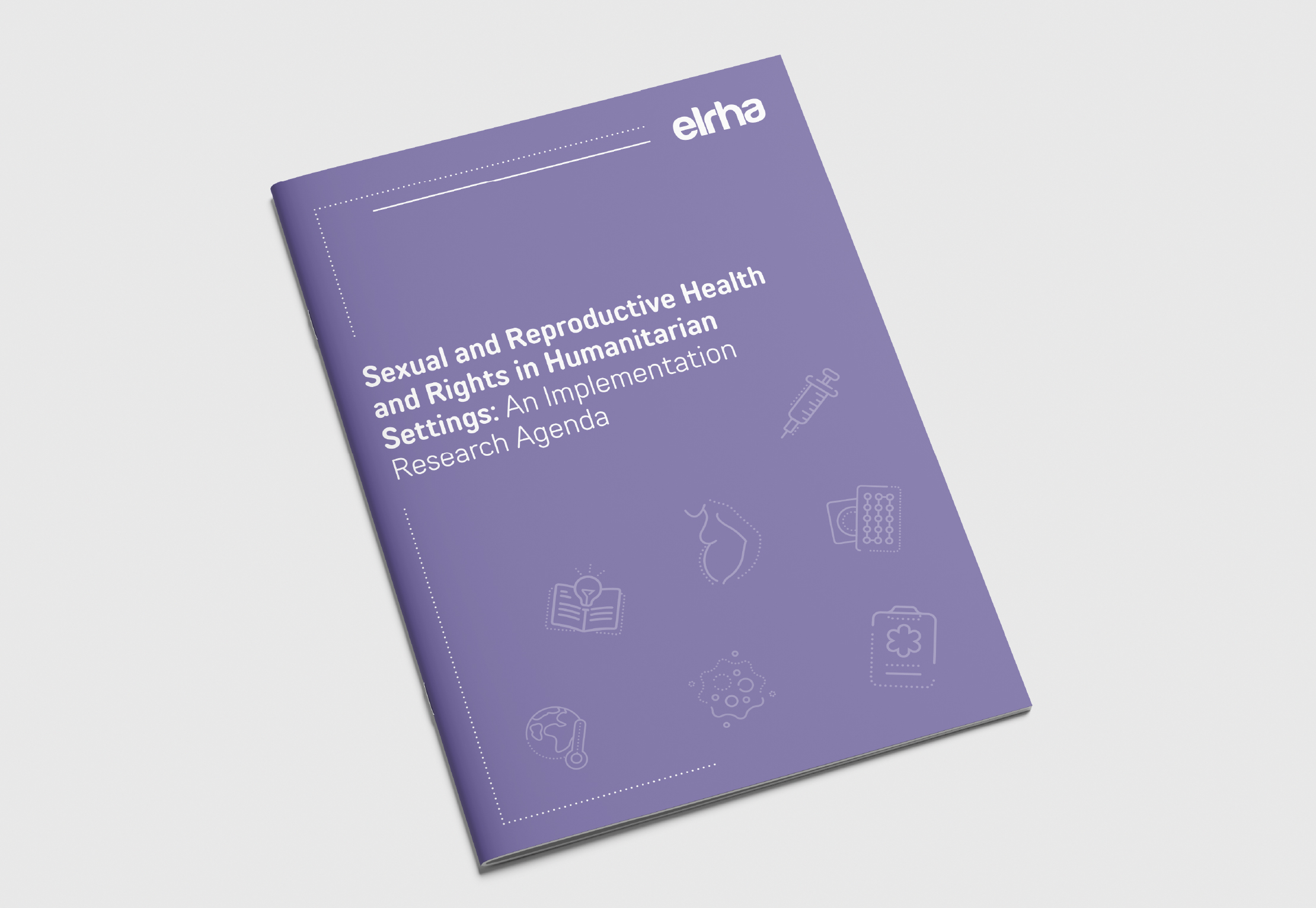Sexual and Reproductive Health and Rights in Humanitarian Settings: An Implementation Research Agenda

Overview
Sexual and Reproductive Health and Rights (SRHR) are fundamental to wellbeing, dignity and equality. Yet, SRHR are often severely compromised during humanitarian crises, where access to services is disrupted by conflict, displacement or environmental disaster. Women, adolescents and marginalised groups in particular face heightened risks of maternal mortality, unsafe abortion, sexual violence and STIs (AlignMNH 2025; World Health Organisation, 2025; Bendavid et.al. 2021).
Despite two decades of increased investment and programming in SRHR in humanitarian settings, significant gaps in evidence persist. Fragmented health systems, constrained resources and complex humanitarian contexts have limited the ability to generate rigorous, actionable evidence. This, in turn, restricts efforts to design, scale and sustain effective interventions in some of the world’s most vulnerable settings.
In response to the evidence gap and a need to ensure judicious use of resources, we commissioned a new prioritisation study.
The goal of the study was to develop an updated and actionable set of implementation research priorities to strengthen SRHR outcomes in humanitarian settings through a transparent participatory, inclusive and evidence-informed prioritisation process.
This agenda is designed as a navigation tool for donors, governments, implementers and researchers to identify high-priority, practice-relevant research questions in SRHR in humanitarian settings. The focus on delivery, equity and system resilience makes the questions well suited to implementation studies, operational pilots and embedded research.
Key Insights
The prioritisation spans the nine SRHR domains and three cross cutting areas listed below, as well as six World Bank geographic regions. In each SRHR domain research questions were ranked by respondents globally to reveal priorities. This process has identified several closely ranked research questions requiring attention within each domain and to steer investments for the next 3-5 years. Find out more by reading the full report or following the links to each domain below.
- Comprehensive Sexuality Education (CSE).
- Sexual Health and Wellbeing.
- Family Planning and Contraception.
- Cancers of the Reproductive System.
- Sexually Transmitted Infections (STIs) and HIV.
- Maternal and Newborn Health (MNH): Antenatal/Perinatal Care.
- MNH: Postnatal/Newborn Care.
- Comprehensive Abortion Care.
- Clinical Management of Rape.
- Crosscutting – Stakeholder Engagement.
- Crosscutting – Service Delivery and Health Systems.
- Crosscutting – Climate Resilience.
Methodology and Background
This study builds on our second Humanitarian Health Evidence Review, previous prioritisation exercises, including those led by WHO and the Inter-Agency Working Group on Reproductive Health in Crises (IAWG) in 2018, and our Innovation for Sexual and Reproductive Health in Humanitarian Crises Situational Analysis.
The study was conducted in four interconnected phases:
- Systematic evidence review and mapping of existing research priorities
- Stakeholder consultation.
- Refining and re-categorising research options.
- Designing and implementing a global participatory survey to rank research options.
The methodology was designed to ensure transparency, inclusiveness and a strong grounding in operational realities within humanitarian settings.
References
- AlignMNH. The Mortality in Humanitarian Settings Dashboard [Internet]. Baltimore (MD): AlignMNH; [cited 2025 Jun 6]. Available from: https://www.alignmnh.org/issue/datadashboard/
- World Health Organization. Trends in maternal mortality 2000 to 2023: estimates by WHO, UNICEF, UNFPA, World Bank Group and UNDESA/Population Division. Geneva: World Health Organization; 2025.
- Bendavid E, Boerma T, Akseer N, Langer A, Malembaka EB, Okiro EA, et al. The effects of armed conflict on the health of women and children. Lancet. 2021;397(10273): 522-32. doi:10.1016/S0140-6736(21)00131-8
- Kobeissi L, Nair M, Evers ES, Han S, Grear S, Tappis H, et al. Setting research priorities for sexual, reproductive, maternal, newborn, child and adolescent health in humanitarian settings. Confl Health. 2021;15(1):16. doi:10.1186/s13031-021-00353-w
- Ouedraogo L, Nkurunziza T, Muriithi A, Tappis H. Setting regional research priorities for sexual and reproductive health and rights services in humanitarian settings. Adv Reprod Sci. 2021;09(01):60-8. doi:10.4236/arsci.2021.91007
- Inter-Agency Working Group on Reproductive Health in Crises (IWAG). Workshop on sexual and reproductive health research priorities in humanitarian settings: meeting report [Internet]. New York: IAWG; 2018 [cited 2025 Jun 6]. Available from: https://iawg.net/resources/workshop-on-sexual-and-reproductive-health-research-priorities-in-humanitariansettings-meeting-report